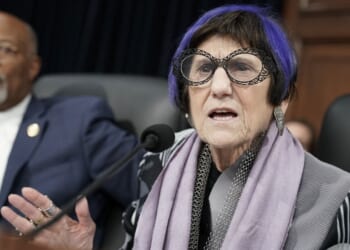President Trump is in Asia, and his trip appears to be producing results:
The United States announced finalized trade deals Sunday with two Southeast Asian nations — Cambodia and Malaysia — that contain provisions aimed against China, and further progress with two others in the region, Thailand and Vietnam.
This is a big deal:
The two final deals and two framework agreements announced Sunday cover about 68 percent of approximately $475 billion in U.S. two-way trade with the 10 members of the Association of Southeast Asian Nations.
It is another victory for the Trump administration:
Trump threatened high tariffs on the four countries, along with others around the world, to prod them into making policy reforms to open their markets to more U.S. goods and services. In exchange for those concessions, he reduced the tariffs he threatened to impose but still will be levying duties of either 19 percent or 20 percent on the four countries.
“These landmark deals demonstrate that America can maintain tariffs to shrink the goods trade deficit while opening new markets for American farmers, ranchers, workers, and manufacturers,” U.S. Trade Representative Jamieson Greer said in a statement.
It is hard to get straight reporting on tariff issues. Most of what you read is hysterically anti-Trump, and the President’s critics seem unable to distinguish between an initial negotiating position and a final agreement. Then, too, there are legal complications: Trump likely doesn’t have statutory authority for most of the tariffs that he has purported to levy. That issue is working its way through the federal courts, but my reading of the opinions so far is that the tariff opponents have the better legal case. However, if those tariffs lead to agreements like the ones just announced, the legal issue will be moot. The agreements will stand, even if Trump lacked the statutory authority for the tariffs he initially announced.
And that’s not all: in breaking news, the U.S. and China appear close to a trade deal:
A trade deal between the United States and China is drawing closer, officials from the world’s two largest economies said Sunday as they reached an initial consensus for President Donald Trump and Chinese leader Xi Jinping to aim to finalize during their high-stakes meeting.
***
China’s top trade negotiator, Li Chenggang, told reporters that the two sides had reached a “preliminary consensus,” while Trump’s treasury secretary, Scott Bessent, said there was “a very successful framework.”
The dust is far from settling on controversies over international trade. But I think that in the end, we will find that President Trump has largely succeeded in obtaining a more level playing field for American exports. World Bank economists agree with Trump that the international trade regime has disfavored the U.S.:
The World Bank effectively endorsed President Donald Trump’s complaint about the high tariffs that other nations impose on American products, calling for U.S. trading partners to sharply reduce their import taxes to more closely match the lower levies typically imposed by Washington.
The president says it is unfair that American companies face higher trade barriers in Europe, Japan and China than foreign businesses confront when they sell their products in the U.S. market. The World Bank’s top economists agreed, calling for an across-the-board reduction in tariffs.
In addition, Trump’s efforts will have led to substantially increased investment in American manufacturing.
Liberals have denounced Trump’s trade policies because they denounce everything Trump does, even though on trade, his policies are nearer to traditional Democratic dogma than Republican dogma. Many conservatives have also attacked Trump’s tariffs because we believe in free trade. Yet in the end, it may well be that Trump will be proved right: whether he had the legal authority or not–it is a close question–his standing up for America in the international trading system may ultimately be seen as a significant benefit to the American people.















